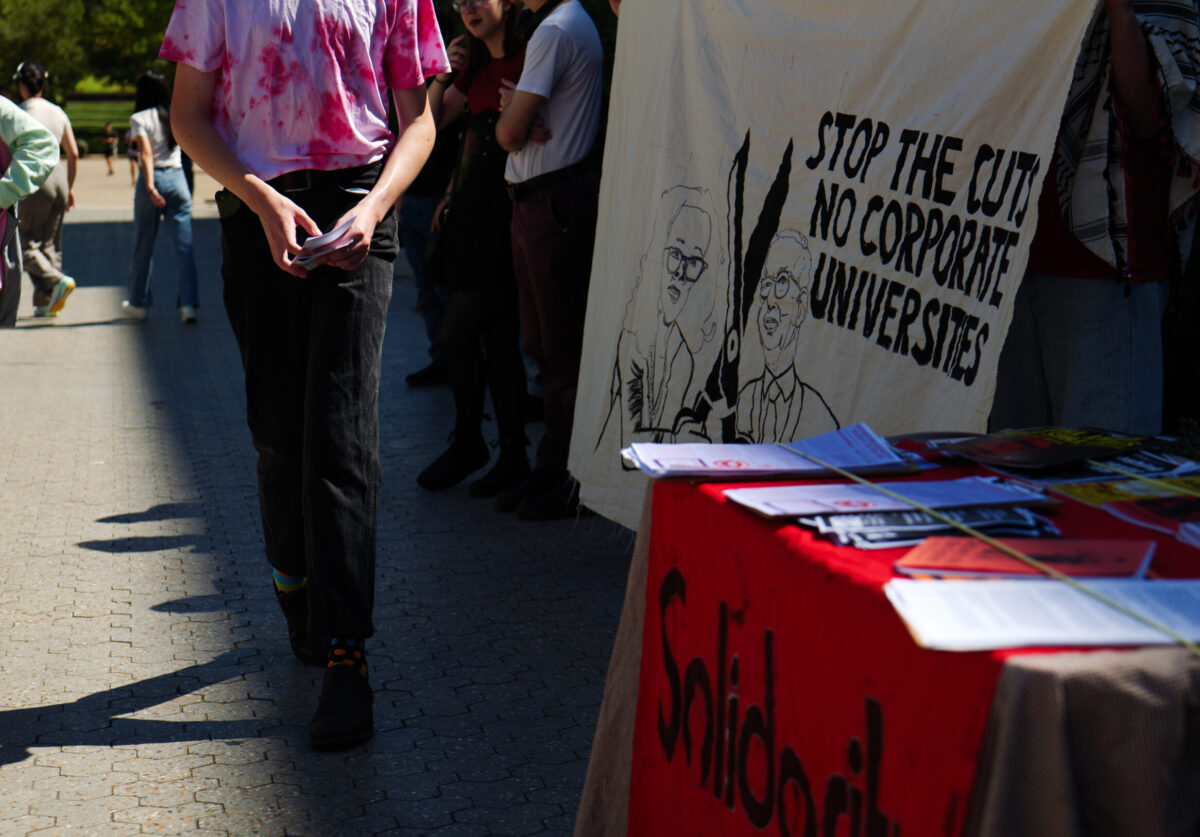With the University of Technology Sydney (UTS) and Western Sydney University (WSU) announcing major budget restructures in the past few weeks, it is clear that the entire Australian University sector is in crisis as repeated deficits are catching up with management, and jobs and courses start to disappear.
UTS has affirmed its decision to impose its controversial budget cuts, initially announced last November. This significant budgetary move aims to cut 400 jobs and $100 million in expenditure, despite debate over their necessity given a lack of transparency on its current deficit. Similarly, WSU announced on 21 April that its projected deficit of $6.5 million would balloon to $79 million by 2026. In response, the University intends to cut another 400 staff over the next few years, including 25 percent of its senior leadership team.
This round of cuts follow the ANU’s own major restructuring, being the first domino to fall in the sector’s seemingly financial collapse. Students may have already began to feel the impacts of the $250 million of cuts in the University’s Renew ANU agenda, with higher parking fees, larger classrooms, and degree restructures, and for staff, less resources, higher workloads and their jobs themselves.
The combined restructuring agendas at nine separate Australian universities will result in the loss of 2,200 jobs, and $650 million from budgets. This follows an already significant downscaling across the sector following the start of the COVID pandemic.
Why is this happening?
The answer, as with everything, is complex and highly debated. The universities generally have blamed lower enrolment rates, and unclear Federal Government policy surrounding international students.
Domestic student enrolments have fallen in the past few years, with some 100,000 less students in bachelor degrees than the previous high in 2016, seen in part due to high fees. This was largely spurred on by contribution adjustments by the Morrison Government which placed a greater financial burden on students, and the relief provided for STEM and Nursing degrees has not resulted in significant enrolment increases.
Federal politics has additionally targeted international students recently, with both Labor and the Coalition supporting enrolment caps. The Coalition’s backflipping on the issue resulted in Labor’s reforms failing in Parliament last year, yet the Coalition continued to take it as an election policy. Whilst that bill failed, Labor seemingly has managed to, via ministerial directives, implement a de facto cap. With one of the highest proportional intakes of international students in the world, Australia’s university sector relies heavily on international students for funding who, on average, pay double the amount of a domestic student. At ANU in particular, international students make up approximately a third of the cohort.
The National Tertiary Education Union (NTEU), whilst not denying the situation, has been scathing in its criticism of the sector’s leaders, arguing they are overestimating external pressures to make up for governance failings, and that current austerity measures will gut the sector. In response to the UTS cuts, the NSW Secretary of the NTEU, Vince Caughley, stated that it was “…another example of the governance failures and lack of accountability that have become entrenched in Australian universities”. UTS has notably refused to provide transparency on its cuts, and with the aim of producing a $96 million surplus, many staff are dissatisfied with leadership and regard the cuts as unnecessary.
More broadly, the NTEU claims that the entire sector has been heavily corporatised, and its financial reliance and turbulence amidst lowering enrolments, specifically for international students, is symptomatic of a broader trend of these institutions being treated as profitable corporate entities, rather than important public education and research centres.
Is there anything being done about it?
Major university reform was largely avoided in the Albanese Government’s first term, and neither major party took structural reform to the election last week. Primarily, universities have recently been used as a talking point against international students and antisemitism on campuses. Labor appears to remain committed to their international student caps going into their second term, and have promised a 20 percent cut to all HECS debt as part of its first major legislative agenda upon its return to Parliament. Additionally, Education Minister Jason Clare has committed to implementing more of the recommendations in the Universities Accord report, but details of this are limited.
The primary pressure for reform has come from the NTEU’s successful push for a Senate Inquiry into University Governance. The Inquiry’s interim report has flagged a number of the aforementioned governance issues, such as corporatisation and a lack of transparency. The final report, due in August, may prompt a much needed policy response.
We acknowledge the Ngunnawal and Ngambri people, who are the Traditional Custodians of the land on which Woroni, Woroni Radio and Woroni TV are created, edited, published, printed and distributed. We pay our respects to Elders past and present. We acknowledge that the name Woroni was taken from the Wadi Wadi Nation without permission, and we are striving to do better for future reconciliation.
